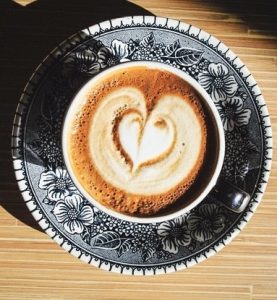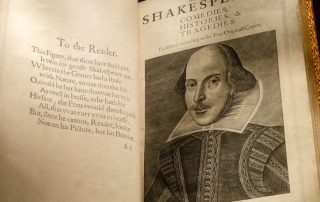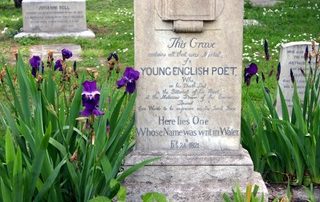![]()
“As poets and as readers we are both the users and the transmitters of this lexicon. Today we need to keep adding not subtracting meaning, remembering not forgetting, to connect ourselves to the chain that ultimately joins all cultures.”
Sophia Nugent-Siegal
Welcome to Lexicon
 Wittgenstein famously concluded his Tractatus with the memorable comment: “Whereof we cannot speak, thereof we must remain silent”.
Wittgenstein famously concluded his Tractatus with the memorable comment: “Whereof we cannot speak, thereof we must remain silent”.
Unlike Ludwig, Sophia, in whose memory this site is maintained, did not accept “remaining silent” as a viable intellectual option—not because she thought ultimate meaning any more expressible than did Wittgenstein, but because she thought the battle was necessary.
Heroic, doomed to failure, absolutely essential.
Poetry on the Hill (2018)
Poetry on the Hill (2018) It was the Celebration of Books in Maleny last weekend, and beside the grand tree on the Precinct a poetry reading was once again held. Sponsored by Unity Water (careful stewards of the splendid site) and organised by Maleny’s creative community, the event was ably hosted by Radio National’s Kate Evans. The weather was glorious—one of those perfect winter days where the world seems all sky. The audience was warm and appreciative. The poetry, from six poets—MTC Cronin, Brett Dionysius, Vivienne Mohan, Angela Gardner, R. Nugent and, of course, Sophia Nugent-Siegal—gave such a fascinating insight
Soul Music
Soul Music The aching loveliness of the Revolutionary Army of the Infant Jesus (RAIJ): https://www.youtube.com/watch?v=TXboKzl-S10 Prayer "Lord Jesus Christ, Son of God, Oh please take care of my beautiful child." (recorded at St Luke’s Church, April 2018) . . .because beauty really will save the world. RAIJ’s exploratory and spiritually profound music—including their latest album, the breathtaking Beauty Will Save The World—is available here: Occultation Records Open a doorway in your soul, listen. . .
April 23rd….Shakespeare’s day.
April 23rd….Shakespeare’s day. We can’t be absolutely certain (church records for Shakespeare's baptism and funeral have been extrapolated to give the 23rd as the likely date for both his birth and death), but it seems somehow fitting for the man who almost singlehandedly made tragicomedy a workable concept—who could, for example, put some of the most mordantly funny lines in the English language into a play (Hamlet) that is concerned with the question of whether life is meaningless and mere existence unbearable—that his birth and death should be commemorated on the same day. Doubles and doubling of one sort or
Sophiae Filiae Dulcissimae
Treasures from the Vault: Sophiae Filiae Dulcissimae The Internet is an amazing resource. As an historian, Sophia found it wonderful that, even in Australia, thousands of miles from the centres of the ancient and medieval worlds she studied, she could get access to primary sources—texts, manuscripts, images, epigraphs—that once scholars had to make pilgrimage to find. Here is one excellent resource, a website that provides online access to Greek and Roman epigraphs (EAGLE or Electronic Archive of Greek and Latin Epigraphy): http://www.edr-edr.it/en/present_en.php On the site I found a record of a grave marker (from Rome) that seemed particularly poignant. Translating
Forever Young
Keats: Forever Young Keats died today. February 23rd, 1821. He was 25 years old. It is a select group, the band of poets who died young. The admission price is steep. I wish Sophia had not had to pay it. I wish she was not now, like Keats, “forever young.” Yet she is. She will always be 22, as he is 25. “Bury me in garlands/ Of burning paper/ With all my pollen sparks of steel,” Sophie says in one of her poems. Fire and steel. The kid was fierce and she was brave. She was more a Metaphysical than a
Saving Narnia
Saving Narnia: Sophia, On History There is a strange and wonderful symmetry to Sophia’s life, as if it was crafted with a writer’s eye; every piece feels necessary and precisely placed, like one of those poignant yet beautiful Russian stories Sophie loved so much, a vivid portrait sketched by Tolstoy. One aspect of such symmetry is the deeply embedded nature of Sophia’s love of history. It runs, like a golden thread, through the pattern of her whole life. As I’ve noted elsewhere, living in Italy as a 4-year-old had had a powerful effect on her. At this age too, little
Sophia: January 17th
Sophia: January 17th In the car park, green things Push through bitumen to survive, While above, a winter sky of powdered jewels, Fra Angelico blue, waits for its angels. Suddenly your eyes, so blue themselves, looking up Are full of tears. There, in a wheelchair, in a car park, Amid the grime and weeds, You cried for the beauty of the sky. I cry thinking of it, thinking of the mind That thought the thoughts you thought, The soul that saw the world you saw. And I see, beautiful child, I see the world with your eyes.
The Scrovegni Chapel
Scrovegni Chapel—The Nativity The image of the Nativity scene, and the detail of the angel from it which accompanies one of the Christmas posts (The Gift), are from Giotto’s fresco cycle in the Scrovegni Chapel (or Arena Chapel) in Padua. These images were chosen not just for their appropriateness to the time of year, but also because the Scrovegni had a particular significance for Sophia. The Scrovegni is an artistic gem. It is one of the loveliest works of art in a country filled with lovely things. Padua was bombed during the war, and what is left of the historical section
The Annunciation and the Nativity
The Annunciation and the Nativity The following poem is by a 16 year-old Sophia. It is taken from Loose Leaves, the sequence of poems she wrote after seeing The Medieval Imagination, an exhibition of illuminated manuscripts at the State Library in Melbourne. Ours is a broken world. The battle against disorder, which (as is symbolised in Sophie’s poem) includes suffering and death, is fought line by line, poem by poem, thought by beautiful thought. Sophie loved Christmas, and would wish to give to others the deep meaning of it. The Annunciation and the Nativity, Psalter-Hours (Southern Netherlands, Liege, 1270s) The
The Gift
The Gift. It is that time of year. Joy lies at the heart of it. Christmas signifies the astonishing concept at the centre of Christianity, that of the Incarnation (in which the Absolute Being sustaining all things but eternally existing—perfect and unchanging—outside them, entered our world, doing so in the most vulnerable and mutable of human forms, that of a tiny baby). Libraries have been written to unpack this notion. A lazy familiarity with the Christian story prevents many people from understanding its philosophical complexity (we are more amenable to the idea of “mystery” in the religion and philosophy of










